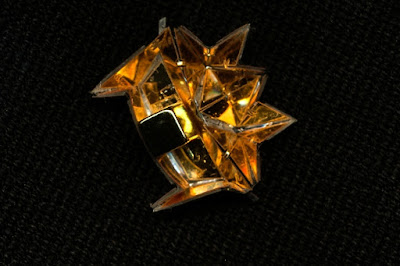MIT's Tiny Robots For Painless Surgeries
Breakthrough Medical Robotic System Being Developed
Potential Drug Treatment Delivery System, Non-Invasive Surgery and More
Researchers at MIT's world famous CSAIL (Computer Science Artificial Intelligence Laboratory) are developing revolutionary, new, tiny robots, shaped like centuries old, Japanese art called origami, with tremendous medical potential. Here are the key facts:
- MIT scientists and roboticists are using origami folding patterns to create tiny robots to perform "no incision, no pain and no infection risk surgeries"
- Robot can fold to the size of a pill
- It is ingestible
- It can be moved around in the digestive system by using magnetic fields
- It has been successfully tested and removed a tiny battery button in an artificial stomach and digestive tract - young kids in the thousands ingest these potentially deadly battery buttons every year
- MIT has been developing and moving this technology forward for several years
- MIT experts involved in the project believe that origami is at the forefront of a scientific and technological revolution in biomedicine
- Potential uses of the tiny robotic technology include as a patch for wounds, delivering medicine internally and for painless, no incision surgeries.
For more news stories on innovation like this, Latest Innovations for Tomorrow



%20(1)%20(1)%20(3)%20(2)%20(2).jpg)


Comments
Post a Comment